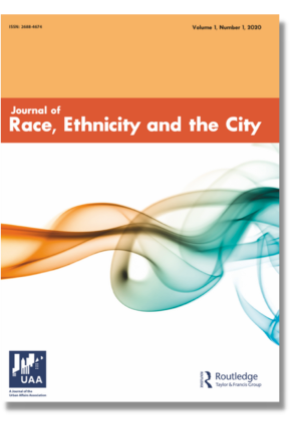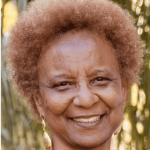
Photo by: Lerone Pieters on Unsplash

The Journal of Race, Ethnicity and the City (JRE):
We are particularly interested in groundbreaking theoretical, empirical and engaged scholarship manuscripts that meet the aims and scopes of the journal and set the tone for future issues of the JRE. We invite manuscripts based on original empirical work, as well as review articles and shorter perspective pieces.
While the planning for the Journal of Race, Ethnicity and the City (JRE) started several years ago, the official launch of the journal took place in September 2020 in the midst of a global pandemic and ongoing widespread protests against police murders of Black people in over 60 American cities.
Black communities across the world continue to bear the brunt of systemic racial inequalities.
Sustained institutionalized racism continues to negatively affect the daily lives and life chances of Black and racialized ethnic people within the urban realm.
Questions of difference are further sharpened due to the resurgence of right-wing populist politics.
Political movements are seeking to mobilize ethnic majorities against minorities in support of authoritarian nationalist agendas in many countries around the globe, including Brazil, India, Hungary, the United States, and the United Kingdom.
(2020) Race, ethnicity and the city, Journal of Race, Ethnicity and the City, 1:1-2, 6-10, DOI: 10.1080/26884674.2020.1787754
Editors


The Journal of Race, Ethnicity and the City seeks to address five serious barriers that limit the strategic and policy relevance of current social science scholarship on race and ethnicity:
The goal of explaining social/economic/political dynamics, conflicts, and differential outcomes has resulted in a plethora of theories and conceptualizations such as social stratification, marginalization, and intersectionality. While these are helpful ideas that have explanatory power, they are all too often used in ways that obscure or minimize the direct discussion of race.
Studies of racial and ethnic factors in urban life are almost always regionalized. Engaging in research on accessible places and institutions is valuable in that it allows for an in-depth analysis that can yield a fuller understanding of how context factors affect research outcomes. However, studies bound to specific locales limit the transfer and exchange of knowledge on racial and ethnic dynamics across regions and national contexts. Comparative analyses and discussions of national patterns of racial and ethnic inequalities are critical to building a coherent body of knowledge and creating policy strategies to address nationalized and globalized structures of racism.
For decades, there has been a fundamental tension between scholarship on race and ethnicity being viewed as a “special topics” area of discourse, as opposed to being seen as a key organizing principle, a central and framing element. Part of this stems from the fundamental discomfort felt by intellectual stakeholders and powerbrokers within disciplines who lack knowledge in the subject area and are personally uncomfortable addressing it. This is an intellectual form of power speaking to truth. By classifying research on race and ethnicity as somehow “special” or at best “subfields,” the topics are relegated to the equivalent of intellectual sidelines. In this way, such research may grow richly and yield profound insights, but those intellectual advances are largely ignored by the established disciplinary orthodoxy.
To expand research in this manner also requires a reconsideration of research methods. Traditional research methodologies have their utility, but they are also value-driven in ways that limit their effectiveness in studies of race and ethnicity. The almost sacred criteria of objectivity obscure the many subjective decisions made by researchers throughout their analyses. For example, how does the race or ethnic background of the researcher influence those decisions? How does human bias affect research outcomes when each researcher belongs to a specific racial or ethnic group? Additionally, some social questions do not lend themselves to the strict requirements of traditional methods. Should those questions go unanswered? Obviously, the answer is no. To overcome the limits of traditional methods, it is particularly important to infuse research with new theoretical/conceptual frameworks and innovative methodologies.
The potential audience for research on race and ethnicity is large, particularly when issues of inequality and injustice are thrust into the public spotlight. Yet only a fraction of studies is cited in public discussions. Most policy discussions take place formally in legislative houses, and informally within media spaces (both social media and traditional televised programs). The content of these discussions is often bereft of research insights. Instead, powerful lobbyists and think tanks provide briefs and arguments based on their own analyses. While some think tanks are engaged in rigorous research, they represent a small portion of the broader research community. The larger body of work done by individuals and collaborating researchers is disseminated through outlets (e.g., conference panels, journals, and books) that have primarily academic audiences. This tendency is understandable given academic reward structures that assign value to such outputs. But if research is to influence policy and public discourse, it is imperative that researchers and academic organizations engage in a research plus agenda. The plus would require both a translation of research findings into readily accessible language, and the pushing out of work beyond academic audiences. In an age of social media, this is easier. Researchers and their professional organizations can build relationships with policy-engaged organizations and elected officials to inform and advocate on issues related to their research topics.
– Margaret Wilder, Ph.D., Executive Director, Urban Affairs Association
(2020) The enduring significance of race and ethnicity in urban communities, Journal of Race, Ethnicity and the City, 1:1-2, 1-5, DOI: 10.1080/26884674.2020.1787755
Editorial office hosted by:
University of Washington Tacoma
Co-Editors:
Managing Editor:
Publisher: Routledge, Taylor & Francis
ISSN: 2688-4674
eISSN: 2688-4682
Frequency: 2 issues per year
First issue: September 2020
Academic Institutions
Public Libraries